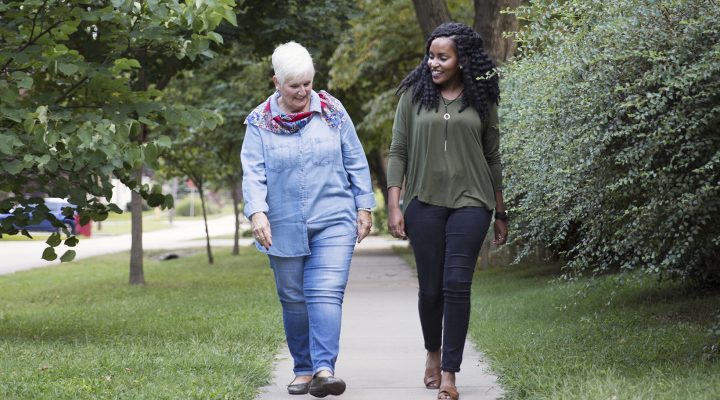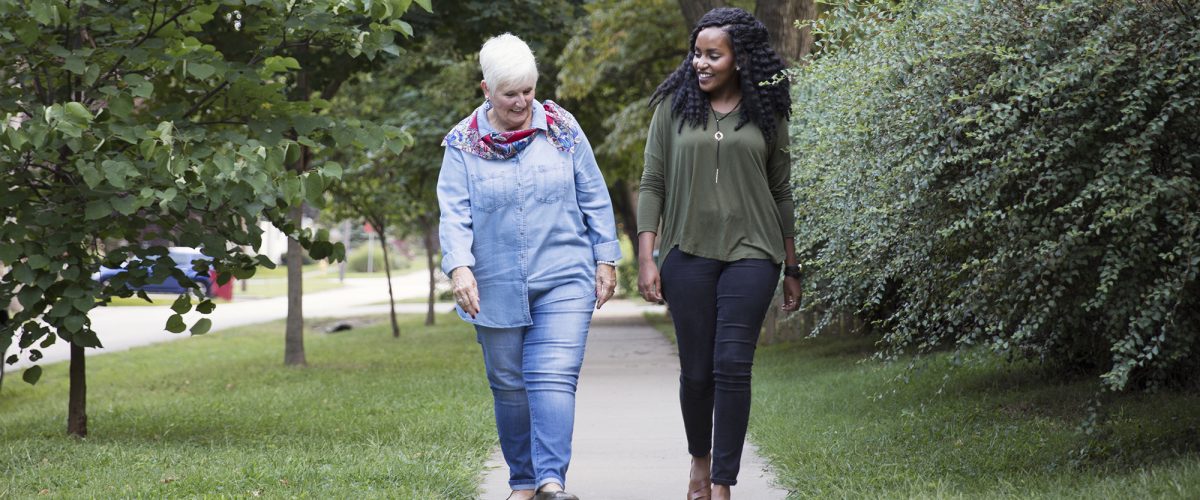Church leaders must abandon the desire for control and prestige and cooperate with other ministers if they seek to be effective agents of change in their communities, a New Jersey pastor and street minister believes.
“One of our main responsibilities as faith leaders is to engage, to get involved, to treat those individuals that we see in our communities doing things that may be unsavory and unsafe and not to walk by and act like they don’t exist,” said Tawana Thompson, apostle of Kingdom Access Church in Newark.
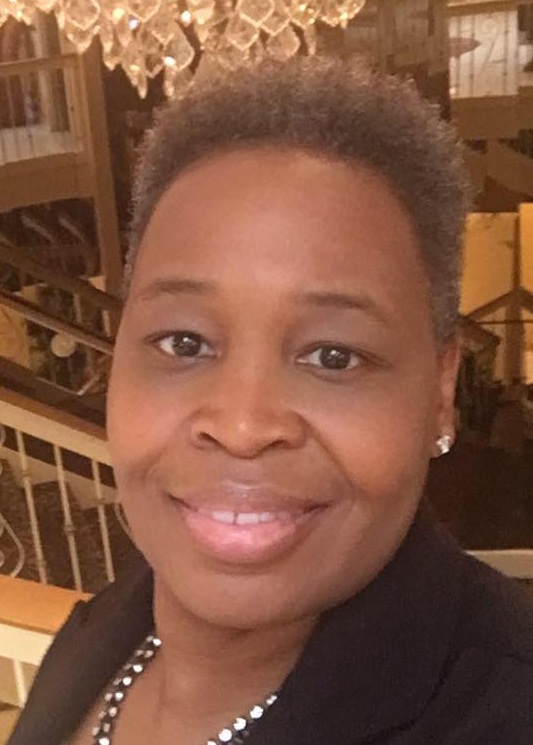
Tawana Thompson
She spoke during a Dec. 14 webinar sponsored by Equal Justice USA on the topic “The Church’s Role in Ending Violence and Building Safe Communities.”
For churches to move in a positive direction requires clergy and congregations to shift focus from themselves and their internal concerns to ways of serving their struggling neighbors, Thompson said. “We have to take the initiative to address them and to speak to them and to let them know that we see them. … If you’re going to be an agent of change, you’ve got to be the change you want to see. You’ve got to be that person who’s going to make that first step to being changed.”
Thompson was joined by two other New Jersey-based pastors for the discussion held on the decade anniversary of the Sandy Hook school massacre in Newtown, Conn.
The intense community advocacy for gun and community safety since the killings has done little to change violence in America, EJUSA’s Zayid Muhammad said.
“This conversation tonight has a demanding and painful background. It was on this date 10 years ago that somebody walked into an elementary school with an overloaded weapon and took the lives of 26 people, six teachers, 20 children,” said Muhammad, EJUSA’s Newark strategist.
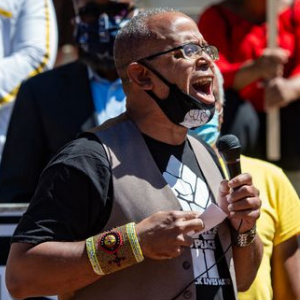
Zayid Muhammad
“As it should have, that horrific story got a mammoth amount of attention, … However, it didn’t lead to the change we need to see in terms of officialdom doing what it needs to do to help us combat this plague of gun violence,” he reported.
The attack also exposed differences in the way government and society see the shooting deaths of whites and Blacks — an issue examined in the viewing of the documentary “We Are All Newtown” during the webinar.
Placing appropriate value on Black lives, Thompson said, requires shifts in the values and actions of Black communities and churches. “If we’re going to talk about making change, then we have to be the change. We have to exemplify that in everything that we say and do in the midst of that community. It’s not just what we say, but it’s what we do.”
Inspiring clergy and congregations to make that shift requires deeper changes within faith communities, said panelist Toby Sanders, a pastor with the Newark Community Street Team, a trauma-informed violence-reduction intervention organization.
Even the term “church” is problematic because it sets Christians apart from those in need of ministry, he said.
“We have got to get out of the church and out of the mindset that what we do one day a week, and what songs we sing, is what makes us the people of God. That’s not what makes us who we are. We have to critique the whole concept of church,” he declared. “We must get beyond the veneration of the concept of church and the concept of the ecclesia and the concept that we’re called out. We ain’t called out unless we are called to go through.”
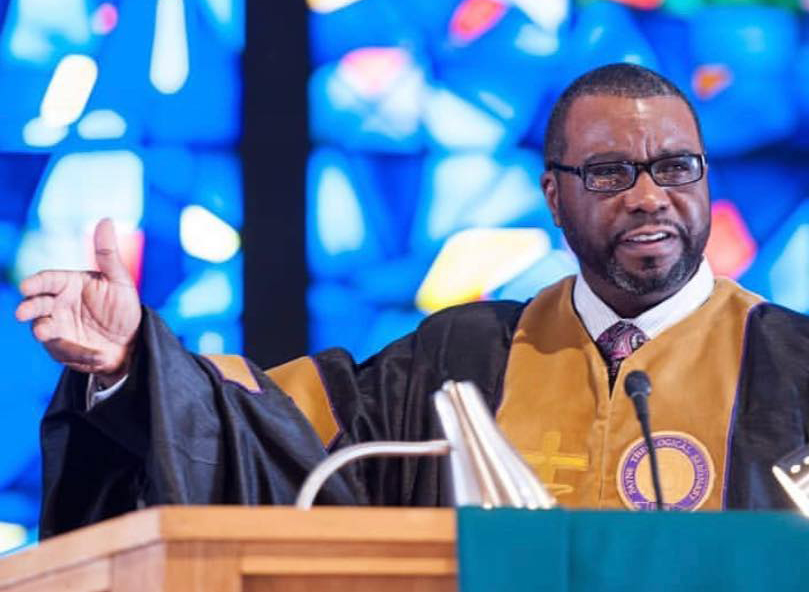
Charles Boyer
The problem facing Black Christians goes even deeper than that, said Charles Boyer, pastor of Greater Mount Zion AME Church in Trenton, N.J., and founder of Salvation and Social Justice, a public policy organization that advocates for social and criminal justice.
“There’s a massive theological problem with us. We have totally baptized ourselves in the white man’s theology,” he said. “We have a real punitive, judgmental theology that has nothing to do with Jesus, and because of that we have separated from people who are hurting. So, we’re not doing any of that Matthew 25. We’re not serving anybody but ourselves.”
Within the church and beyond it, Black Americans need to take ownership of their communities’ needs and how to address them, he said. “As the church, as faith leaders and just Black people in general, we must stop allowing the government to set the agenda. We don’t give a damn about their agenda. We ought to give them an agenda. Sometimes their agenda might line up with us, but at the end of the day, if we’re setting the agenda and we stay focused, then we don’t allow them to come in and operate outside our agenda.”
Salvation and Social Justice was founded for that purpose, Boyer added. “We have a policy agenda … informed by people who have been impacted by structural racism and violence, and that informs our agenda. That is how we serve the least of these.”
Christ himself demonstrated that approach, he added. “It’s our responsibility to be at the same tables in our context that Jesus was in in his context. And therefore, it’s imperative for us to build institutions, to build mechanisms, solutions of transformation, that liberate Black people and that those are instituted by Black people.”
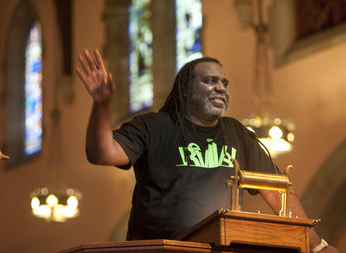
Toby Sanders
In response to the documentary, Sanders echoed Boyer to say activists, including people of faith, must continue to press changes in how society values Black people.
“I have a critical lens on the difference between people’s attention to the death and the value of white lives, versus their inability to empathize or pay attention to the death and suffering in Black lives,” he said. “I don’t think we are going to get very far toward solutions until we address the violence — structural and systemic and literal — aimed at Black bodies and driven by anti-Black sentiment in particular.”
But progress will remain elusive as long as religious leaders jockey for position in community-wide approaches to ministry, Thompson chimed in. “No man is an island. If we’re going to attack this and be successful with it, we’ve got to come together. There’s no need for me to reinvent the wheel.”
She urged lay people to jump into ministry and advocacy in the same way: “Find where you fit. You don’t have to have a title. You just have to have passion. Find a place and get moving.”
Related articles:
Survey says: More than half of U.S. congregations started new ministries during COVID
Rural church offers community development grants through Gratitude Project
‘Jesus was in the streets,’ Louisville pastor says in urging new ministries

